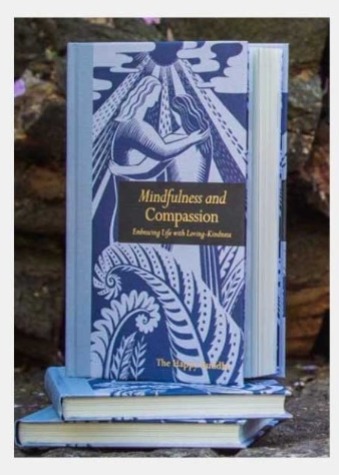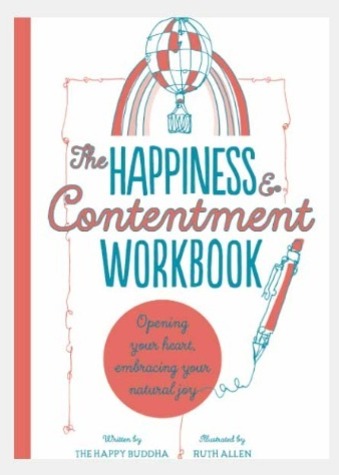BENEFITS of building a COMPASSIONATE CULTURE By working with us, you can access the transforming benefits of experiential learning of compassionate mindfulness practices

More engaged and happier staff

Greater awareness and understanding of self and the impact on relationships with others

Growing Compassionate Leadership Increased Team Resilience

Wellbeing of your staff

Observable kindness in self and towards others

Increased attention and focus, impacting positively on performance

Wholehearted approach to creativity

More energy for innovation and problem solving

Increased Team Resilience
The 4 COMPASSIONATE CULTURE MODULES By working with us, you can access the transforming benefits of Compassionate Mindfulness

Psychological Safety
A culture where individuals feel included, valued and their contribution appreciated. Team members feel able to participate and challenge without fear of negative consequences.

Trusting Interactions
Fostering Trust, where every member of the team feels included, valued, and respected - enables them to contribute without fear or concern. Trusting relationships are formed when this is consistent and authentic.

Productive Interactions
Happier teams make more productive teams - our interconnection with others is essential for our well-being - we rely on each other.

Leading with Compassion
Know your own leadership strengths and style and how it impacts others. Increase your capacity to appreciate other people style leads to improved wellbeing.

Our program - Transformational not transactional
The underpinning of all four modules is that they have strong roots -this starts with developing and maintaining a mindfulness and self-compassion practice
The model is a transformational and starts with increasing self -awareness for individuals, extending to others in the team and the wider organisation and community.
All sessions are experiential and give the opportunity to apply kindness, be curious and learn the skill of non-judgment. The focus on noticing and building awareness, develops the capacity to be creative, get practical, see and feel the impact.
Information input and evidence is limited, the focus is on individual and group/team inquiry.
The application to context or situation is measured by agreed objectives and outcome and impact measurements.
The roots of the Creating a Compassionate Culture Programme:
Each member of the team is offered the 8 session mindfulness and compassion course. This can be experienced either through 1:1 sessions or as a team through group learning. This course supports individual wellbeing. The individual insight in to habitual thinking brings greater self-awareness and builds resilience.
Team workshops and shared learning sessions are also part of the programme to agree how mindfulness and compassion practices will be applied to the work environmental.
In addition there is access to coaching and or mentoring and the opportunity for teacher training to build a sustainable compassionate mindfulness culture.
You will be given access to our resource Library of guided meditations, wisdom stories, observations and teachings.
You will also be given a certificate of attendance for your CPD records.
When we hold a position of authority, it can seem weak and inappropriate to ask for help.
Shouldn’t we be able to sort this out on our own? Will it not undermine our position and authority to admit we are struggling and to reach out for help?
Fortunately, times have changed. The negative effects of enduring work-based stress are widely recognised, and modern companies such as Google and LinkedIn and the NHS are just a few examples of organisations that have introduced widespread measures to help their staff with workplace stress.
Forward-thinking companies recognise that without such support, there is likely to be a detrimental effect - not only on the individual concerned but consequently on their team and the organisation as a whole.
When we are struggling in this way, we often project outwards. We blame the job, the boss, the role, our partner. But our experience shows that a simple intervention is often enough to turn the whole scenario around.
Even if your organisation is not ‘there yet’, it is possible to get outside help. There is no need to feel isolated, unsupported, and alone.

Psychological Safety
Within a culture of psychological safety there is kindness, empathy, civility and compassion.
Evidence suggests that psychological safety has a number of benefits including:
There is openness and honesty about the situation leading to a greater understanding, ownership and participation in the solutions
There is increased creativity as team members feel able to share ideas and explore options collaboratively
Teams feel able to take risks knowing that they have shared ownership of the impact
Individuals feel a greater sense of appreciation and satisfaction, and know that what they do matters
Staff are retained as they feel supported and their wellbeing is valued, which allows for further individual and collective learning and growth
For some organisations developing a culture of psychological safety has never been so important. Many teams have felt more able to share ideas and contribute during the pandemic as they were collectively seeking to adopt new ways of working. Sustaining this new way of working needs to be carefully managed and not allowed to fade away.We recognise this was not the case for all and some teams were more subject to a command and control style of working which has become the norm.
The team at Be Mindful Now provide an opportunity for individuals and teams to explore whether they believe psychological safety exists within their work environment. The NHS staff survey also provides insight into whether colleagues feel safe.
We use compassionate mindfulness techniques to help team members gain an awareness and understanding of the impact. We also give them a personal practice to enable continued development and to support their ongoing wellbeing.
We work with the team as a whole to explore behaviour and interaction to enable the shift to more appreciative interactions that foster psychological safety.
We offer a structured programme or something bespoke for your organisation.

Developing Trusting Interactions in Teams
Developing and establishing meaningful relationships in teams, within organisations and across systems, is fundamental if we are to collectively deliver the vision of integrated health and social care to our communities.
A core element of this is fostering Trust, where every member of the team feels included, valued, and respected. This enables them to contribute without fear or concern. Trusting relationships are formed when this is consistent and authentic.
We offer an opportunity for teams to understand and develop the conditions and behaviors necessary for Trusting relationships. Using a compassionate mindfulness approach, we start with personal introspection and inquiry, enabling team members to self-reflect on their own values, views and recognising biases, and how these may impact on their relationships with others.
We create a safe space to enable sharing of views and context, understand the challenge and recognise the difference between empathy and compassion that underpins trust in building and maintaining relationships
Compassionate mindfulness practices support team members to gain greater awareness of the present moment. We offer a structured programme or something bespoke for your organisation.

Productive Interactions
We all know and research suggests that happier teams make more productive teams - our interconnection with others is essential for our well-being - we rely on each other.
How can our interactions be more productive? By being more present, by being generous in our interpretation and giving people the benefit of the doubt, by listening to others, but also listening to our own heartfelt responses. By learning skillful communication.
We can build a bigger compassionate container through mindfulness practice, that ensures our interactions are honest, respectful and with healthy boundaries. These produce more clarity and satisfaction as we know where we are speaking from, and understand the energy involved in being in conflict.
We can celebrate what is similar and what is different about each other, and appreciate the benefits and outcomes which this understanding brings.
We offer a structured programme or something bespoke for your organisation.

Leadership - More Compassion = More Wellbeing
There is a growing body of evidence that demonstrates the positive impact of a compassionate style of leadership. Not only does this approach enable teams to be successful and fulfil their potential, it also leads to improved wellbeing and genuine caring and inclusiveness.
Taking the time to focus on leaders is important, as West (2021) suggests the interaction by every leader, every day, shapes the culture.
The compassionate leadership module works with individual or groups of leaders to explore their style and impact on others. It starts with self-exploration and awareness through mindfulness and compassion. We support appreciative inquiry, reflection and teach mindfulness and compassion techniques including meditation and breathwork.
The module explores the purpose of compassionate leadership, its core elements as well as the barriers. We provide coaching and mentoring to enable you to adopt a mindful and compassionate style of leadership.
We offer a structured programme or something bespoke for your organisation.
You will be given access to our Resource Library of guided meditations, wisdom stories, observations and teachings. This program also includes a work book.
You will also be presented with a certificate of attendance for your CPD records.
"We all know that understanding and compassion can relieve our suffering. This is not just a platitude, where there is understanding and compassion there is relief for ourselves and others. We practice to keep that understanding and compassion alive. As busy as we are, we can take time to look a little bit more deeply, we can always find more understanding and compassion for ourselves and others"
Thich Nhat Hanh
HOW WE CAN HELP
Here are some of our other offerings:

MINDFUL COACHING AND MENTORING
Mindful Coaching and Mentoring provides a supportive and safe space to explore experiences, to undertake restorative inquiry and reflection for the purpose of continuing personal development and growth.

GROWING A SUSTAINABLE CULTURE
We train staff and managers who currently practice mindfulness to share their own experience and the impact it has in their everyday lives with colleagues.
We provide materials and ongoing supervision to build their confidence to sustain the mindfulness and compassion culture you invest in.
JUST SOME OF THE ORGANISATIONS WE’VE WORKED WITH





















Suryacitta Malcolm Smith, is one of the most experienced mindfulness teachers in the UK, starting his practice in 1989. He is the author of five books that are available for purchase below.
“A perfect beginner's handbook. Absolutely spot-on and beautifully designed.”
Emma Thompson – Oscar-winning actress






